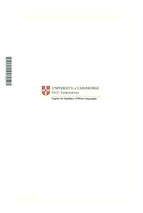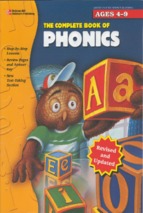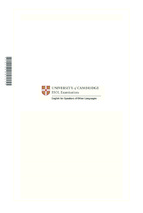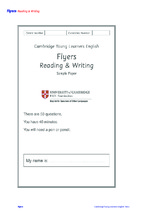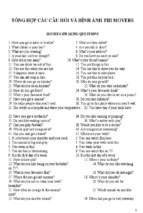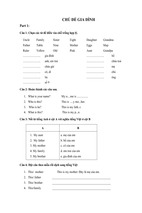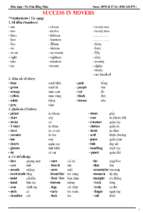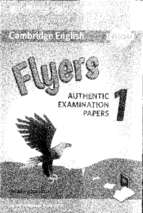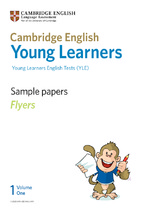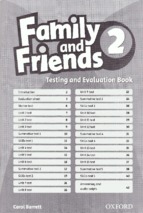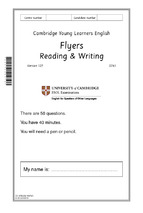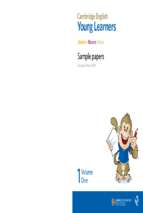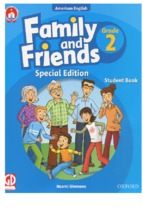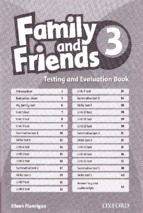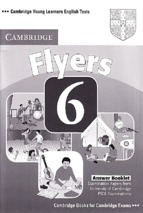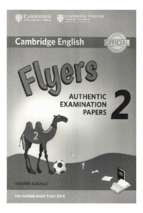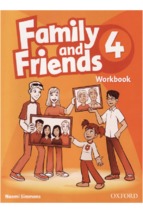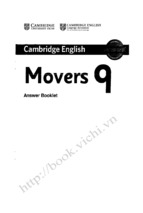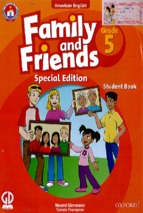Cambridge first certificate in english 7
1001dethi.com,lh mua file nghe 0909265875
Contents
4
Introduction
TEST 1
Paper 1
Paper 2
Paper 3
Paper 4
PaperS
I
Reading
Writing
Use of English
Listening
Speaking
6
14
16
23
27
28
TEST 2
Paper 1
Paper 2
Paper 3
Paper 4
Paper 5
Reading
Writing
Use 01 English
Listening
Speaking
28
36
38
45
49
50
TEST 3
Paper 1
Paper 2
r3
per 4
r5
6
Reading
Writing
Use of English
Lislening
Speaking
50
Reading
Writing
Use of English
Listening
Speaking
72
58
60
67
71
80
82
89
93
TESTS
Paper 1
Paper 2
Paper 3
Paper 4
PaperS
Reading
Wriling
Use 01 English
Listening
Speaking
94
102
104
111
115
Answer Sheets
116
Paper 5 Visual Material
120
Key
129
Sample Student Answers
140
Tapescripts
145
Intro uction
This booIl containS five complete practICe tests Ior
the revised Arsl Certlhcate 10 English (FeEl,
Cambndge levelJ. Developed by expenenced
Writers, the tests accurately tenact \he coverage
ancllevel of the real eXamination Each 01 the tell!S
In Pap8f5 1 and 3 has been laken from a dlllerenl
source. In order la Include examples 01 the WICle
vartety of text typeS that you may
examination
'"'Id In the actual
Note In Papers 1, 3 and 4, you have 10 write your
answers on spec1al anSW8f sheets See pages
PART 3 Gappeol text
You Wilt read a text from which 7 018 sentences or
paragraphs have been removed The miSSing
sentences or paragraphs WIll be pnnted on the
oppoSlla page and}'OJ fl\\lst dectcIa where lhey lit
In the text There WlII always be one extra sentence
or paragraph that does I'IOtllt anywhere You Will
be glveflthe first answer as an example
PART 2
The five FeE Papers lIfD descnbed 10 DetaIl below
Page references to a relevant example 01 each
particular task lype are Included altol the
symbol .....
Paper 1 Reading (1 hour
15 minutes)
In thiS paper. there are lour pariS and 35 questions
In all ReadIng lexls Ble taken lrom 8 range of
sourceS,ll"Ic:llJdlng newspapers, magazines.
leaflets, broc:tlures, advertisements or books Note
tnalln Part 2 the text may also be taken tram a
stlort story. novel, t»ography or autobiography
PART 1 Matching
You WlO read a teld that IS dMded IOto 7 or 8
sections and be asked to do one of the 101l0wu'lg
section
-f
IS
appropnate Ior each
6-7
PART 4 Matching
YOu Will read a text ora seoes of short texIS and
have to answer between 13 and 15 qUElS1l0ns You
Will be asked to do 0l1'~ at the tollowmg tasks
• match a lIst ot statements, references or
oplnooos to the secllOOS of the textlfl whICh they
appeal -> 12-t3
• match a list at statements. references or
0PlflKlltStO people or things mentioned In the
text_ 34·35; 56·57
• match a list ot statemaflts. relerences Of
optnionS to mlormatlOn given In the text .78·
79
There may be only one correct answeno a
questlOf1 However. sometimes more than one
answer IS required Md this Will be Indlcaled
Where thiS IS the C8SfI. answers may be given In
any orOel You wlIl be I~rven the lust answer as an
example
OccaslOnB)ly, there may also be one or two
mUltiple choice questions ot a genera) type. whICh
ask about the text aSll whole
• choose whICh sentence best summar1les each
section ..... 28-29
In elthe' case. you will have 10 answer 6 or 7
QuestlOf'lS and you Will be given a list 01 POSSible
answers to choose !rom, 1l1(lfe will be ona extra
heading or senlence that IS 1'101 the answer to any
Question and III not used You Will be grven the
answer for the lirsl sec\JOI'I as an example
PART 2 Multiple choice
You will read a text and be asked 10 answel 7 or 8
mUlbple choice questions about It For each
question. you must choose A B. COlD,
..-.
McB\ Q\ \he C\,IJeS\\OI\'!I 'MlllUIIt abooJ\ \he de\a\\$ In
me lext 0\TIe1 questIOns may llSl<. anou\ mesa
• reterences In lhe lext. tor example What does 'If'
mime IS re!er to? ..... 8·9
• partbllar words ana pl'UBSes used In the lext
Ior example W'bal does the wnler mean
)udgemental'Jn tha fifth paragraph? '. 30-31
• the text as a wnoIe.1or example WhaIIS fhe
purpose of theartJCie? t 52·53
or
Paper 2 Writing (1 hour 30
minutes)
This paper has !Wo pmts of equal Importance. Part
1 IS a compulsory task fOf all candidates, In Pan 2.
you must select one task from a choICe o! lour FOf
each part. you will be expected to wnte between
120 and 180 words. rnakmg a tota) of between 240
end 360 words Ior the whole paper
PART 1
FOf QuesllOf11 you nave to wnte a '1ransactlOf1al'
\e.\\e'l . ~\ \';;. a Ie\\el 'N1\\\m\ \1\ \e~ \D a
slluallon and 1\Self giVIng nse to turther actlOf1. You
are asked to rBad up to three shorl texIs, such as
tellers. adverts, poslCards and extracts lrom
d,anes or 81l1cJas. Thele are sometimes aCld,lional
Visual promplS, sucl, as draWings or photographs
All of \illS matenal. whICh Is nevel more than 250
words long. grves you IIltormahOll about a
Situation You lhen h.ave 10 respond by WnlJng a
su'table Ielter
Your leller should be almost entuely based on the
InfOlmat,on goven to you ana you 8/e not expected
to draw on YOUlown kt'towledge or Imag,oat,on,
Neither are you asked to lake on the characler of
ano1het pelson In Older 10 Wf\\e \he leller 'l'ou era
given the Sltuatoon and snoold respond to It as you
woold m reallr!e
4
• a tormalletler -+14. 80
• en IntOlmallener ..... 36; 58
• ml5Smg sentences .10-1 \
• mlSsmg paragraphs ~ 32-33
116·11 Q tor examples 01 Those
''''''''
• choose which heltdlng
The tYpe 01 language you Will have to use In your
lener may Include. tor example. the language 01
explaining. suggeslmg. complaining, descflbmg
apologiZIng. reporting, persuading and giVIng and
askrng Ior adVIce and InlormatlOf1. You should wnte
In a style that IS appropnate tor !he specified
reader 01 the leller
The d10Ice of queslJonS In Part 2 sI10uld provide
you With an opporlunlty to wnte about something
related to your own Interests and experience An
Paper 2 tasks stale a context Within which you are
expected 10 Writs ana me181s a genuine purpose
Ior Wfll1ng You win be gIVen InlormatlOll about the
target leader and you should think aOOutlhe effect
you WIsh your pleee 01 Wntlng to have on that
reader
Quesuons 2, 3 and 4 may be WIlling tasks ot the
loIlowlng kmds
• anmlommlleller ..... 15.81
• a leller 01 appllC8tlOfl -+ 37,59
•
•
•
•
anallicle .... 37; 103
a report ...,59;81
a composition 81, 103
ashortstory
,5;59
These tasks ate usually presented through the
rubrIC. whlChJs never more than 70 wo«ls long
QuestIOn 5 COI'lSISts 01 a choICe 01 two tasks
related to one 01 frve 'background readIng texts'
Both lasks are of a general nature. m that \Iley
may De related to any at the tive texts The tasks
are at SimIlar typeS to those menlloned above, The
background reading texts Ior Oecembel 1996 al8:
OJf1ofd Bookworm CoIlec1lOfls Cnme Never Pays
E M fQrster A Passage 10 Indm
Aldous Hu.Jey Brave New WO/Id
Oaphne du Maurier Rebect:a
G B Shaw PygmaJIOfI
MARKING INFORMATION
Papar21s marl. salary. job specification.
style of work. the lifcstyle which
accompanies it. with whom you
would work and in what
surroundings. Your -ramusy day is an
invitation to list the events of what
for you would be thl~ 'pcrfcct day' .
Where would you be. what would
you do. and with wbom. if anybody?
Your fantasy life offers an
opportunity 10 consider your ideal
life as a whole. This picture would
include the work pattcrn. combining
'Work. homc and social life. status.
income.life'ityle. elc. Whichever
topic you choose. put in as many of
the panicula~ as you can so that the
fantasy becomes a full picture.
When you ha' c writtcn down your
fantasy. think carefully through the
following:
• What are my reactions to dOing the
exerci.!>e'! What does the fantasy
indicate about wh:ltl want for
myself?
• What are the differences betwccn
my fantasy and my reality'!
• How much of my fantasy b
achievable at preseDl or might be
in the future? If I can't have it all.
can I have somc of it?
• What are the barriers to my
achieving some of my fantasy and
how might these be overcome'!
• What would be the consequenccs
of my "orldng 10 achie"e some of
the features of my fanlasy. for
myself and for other people'!
• Would the pursuit of my fantasy be
worth the possible consequences'!
What objectives would I like LO set
myself on the basis of this
exercise'!
15 I
You then need to identjfy your
strengths and weaknesses. update
old skills or learn new ones. Look at
your resources and. perhaps most
important. what you enjoy and what
you rcally can'l bear doing. Be
~pecific about your goals. and be
careful not to try to do too much.
When you ha,e decided what your
goal is. and all the thinking. planning
and preparation has been done. your
fre~h .!ttan can no longer be put off.
Ban negathe thoughlS and seize the
momenl- fresh starters are
delennined to see the posith'e side of
things and not 10 lel problems. real
or imagined. block their path. Good
luck!
be a waste of time. Such nighlS of
7
Test 1
Paper 1 Reading
lB·
You are going to read an extract from a book. For questions 7-14, choose the
answer (A, B, C or D) which you think fits best according to the text.
Mark your answers on the separate answer sheet.
They call Jamaica the 'Island in the Sun'. ;md thlll is my memory of it. Of ~unshine, wannth and abundant fruit growing
everywhere, and of love. I was born on 2 April 1960 in St Andrews in Kingston. Therc were two sisters ahead of me in
lhe family, and though of course Ididn't know it, therc was e»ciled Ialk of emigration. possibly to Canada but more
usually to England,lhe land of opportunity. I guess Ihat plans were already being made when I was bom. for a year or so
later my Dad left for London. Two years arrer thu!. when he had saved enough money. my Mum went as well and my
5
sisters and I were lefl in the care of my grandmolher. I slllyed with her. in her house near the centre of Kingston. until I
was seven years old. My grandmother. therefore. shaped my life. and I believe Iam al1the better for il.
This was all fairly nonnal. Emigrating to better yourself was:a dream for most Jamaicans. a dream many were
detennincd 10 fulfil. Families were close and grandmolhcrs were an important part of family life so. when the mass
emigmtions began. it seemed perfectly right and natural for Ihem to lake over the running of the families left behind.
Afler all.lhey had the experience.
GrandmOlhers are often strict. but they usually also spoil you. At least. that is the way it was with mine. She ran lhe
family like a military operation: each of us. no matter how young. had our tasks. I remember Ihat we didn't have a tap in
the house. but used a communal lap from which we had 10 rill two barrels in our garden. Every morning. before we went
to school. we all had to take a bucket approprintc to our size and run a rclay from the communal tap IQ the barrels until
Lhey were full. In thc beginning. whcn I was two or three. Icouldn't reach the barrel- but Istill had to join in. My sisters
had 10 sweep the yard before thcy welllto school. My grandmolher would give orders tllthe eldest and these were
passed down -as I got older I found this particularly annoying! BUI Ican tell you. no one avoided lheirduties.
My Dad came over from England to see how we were getting on. I hadn't known him whcn he had left for Britain. but
when I saw him I !'omehow knew that he was my falher. He I'llked to u.. . aboutlhe nc\\ country. about snow. aboutlhe
huge city, and we all wanted to know morc, to see what it was. like. He al~o told me thall now had a younger brother.
which made me feel excited and wonder what he could be like. Ididn't know it at the time. but he had eome to prepare
us for the move to England. Six months later my grandmother told me Ihatl wa.. . going 10 join my parenrs and that she.
too. was cmigrnling. It was the end of my time in the Caribbean. of the sheltered. wuml. family life that I had known
there. and the beginning of a new and exciting em.
London was strange and disappointing. There was no gold on the pavement:.. a.. . the stories in Jamaica had indicated.
Back home it had always been wann. Everyone was friendly and said 'Hello' when you passed by on the street; in
Kingston you knew everybody and they kncw you. Here. it wasn't Iikc that. The roads were busy. the buildings were
grey and dull with many tall. high-rise blocks. It was totully IJnlike Jamaica. the houses all small and packed close
together. In my grandmother's house I had a big bedroom: here I had 10 share. Althm age it was a great disappointment.
Worse was to come. because there followed a very cold wime-r, and I had never felt cold in my life before. Then came
the biggesl shock: snow. White flakes came out of Ihe sky and Dad smiled. pointed and said. 'That's snow!' I rushed
outside. looked up and opened my mouth 10 let the flakes drop in. The snow settled on my tongue and it was so cold that
Icried. My toes lost all feeling, and at the primary school that we anended I wasn't allowed to wear long lfousers at my
age. The teachers made us go out to play in the playground and Ijoined in with all the fun. sliding around in the snow.
Ihrowingsnowballs, all the usuallhings. Suddenly. as my shoes and socks got soaking wel and frozen. there came an
excruciating pain and Icried with the intensity ofil.1 didn't k.now what was happening to me.
8
10
15
20
25
30
35
Test 1
7
The writer says that when he was very young,
A he was upset because his parents left.
B he was very keen to go to England.
C his parents had decided to leave.
o his parents changed their plans.
8
According to the writer, many people from Jamaica at that time
A wanted to be free from responsibility.
B had ambitions that were unrealistic.
C wanted to improve their standard of living.
o disliked the country they came from.
9
The writer says that when he lived with his grandmother
A he was treated like the other children.
B he wanted to be like the other children.
C he tried to avoid doing certain duties.
o he found some of her rules strange.
Paper 1 Reading
10 What does 'this' in line 18 refer to?
A being told what to do by his sisters
B having to sweep the yard before school
C having to do duties he found difficult
o being given orders by his grandmother
11 What happened when the writer's father came?
A His father did not tell him why he had cam...
B He did not know how to react to his father.
C His father told him things that were untrue.
o He felt anxious about what his father told him.
12 When the writer first went to London, he was disappointed because
A it was smaller than he had expected.
B he had been given a false impression of it.
C he had to spend a lot of time on his own.
o his new surroundings frightened him.
13 What does the writer say about snow?
A He was not sure how to react when he saw it.
B He regretted coming into contact with it.
C He was embarrassed that it made him cry.
o He was not very keen to touch it.
14 Which of the following would be the best title for this passage?
A
B
C
o
Too Many Changes.
A Strange Childhood.
Hard Times.
From Sun To Snow.
9
Test 1
Paper 1 Reading
You are going to read a magazine articli9. Eight sentences have been removed
from the article. Choose from the sentences A-I the one which fits each gap
(15-21). There is one extra sentence which you do not need to use. There is
an example at the beginning (0).
Mark your answers on the separate answer sheet.
On camera
\X!hen I saw the notice '\Vomen film extras
wanted' in a local newspaper, I jumped at the
chance. As a child I had dreamt of being a
film star. []] { I
The casting interview, held in a church hall
with many budding actors in attendance,
went well, and two days later I was told that 1
had been chosen. The production in question
was revealed as Scottish Television's Dr Fiu/ay
drama, which is set in the 1950s.
[}ID
IExtras are often left in the dark for
some time when it comes to being told which
role they will play. Finally, the narure of my
role was revealed; I was asked to play a
mental hospital patient.
[!ID
IThen, barely a week later, the day
of filming dawned. All 13 of us extras, mainly
housewives, were told to change into our
costumes in the wardrobe department. Then
we were driven to the location, a hospital on
the fringes of Glasgow. It seems that it is
commoo for old hospitals to be used in this
way.
On arriving, we were given coffee and tea,
which looked and tasred like cement. Then
we were rushed off to make-up. My hair was
pinned back and make-up was applied that
gave me a pale appearance. Then we were
sent to the minibus for a few hours, as the
cameras rolled elsewhere.
10
After the second hour had passed 1 was
becoming bored.[jI]
II had expected
to be so busy that I hadn't come prepared for
a long wait. Many of the others had brought a
book or knitting.
Three hours had now passed. [}ID~_
A large room in the hospital had been
transformed into a dayroom for that purpose.
Although I had expected the room to be
warm because of the lighting equipment
present, it was quite chilly.
When the director came in, we were
instructed what to do and where to stand.
Along with a few others, 1 was told to sit at a
table and weave baskets. IJ!]
IThe cane
we had to use was very long. On several
occasions my basket fell apart in front of my
very eyes. On others I only succeeded in
hitting a cameraman in the eye.
20
Jean, who was barefoot, had to
circle the floor. Poor AJice was asked to
pretend to bang her head against the wall.
Meanwhile, Veronica swept the floor.
Thankfully, after just a few attempts, the
scenes were done. [gIJ
IAlthough I
found the experience very interesting, my
first screen role will almost certainly be my
last.
Test 1
A
This was not an easy task.
S
Life for the other extras was far from easy.
e
So some things just aren't meant to happen, I suppose.
D
Despite my disappoinnnent, I agreed to participate.
E
And so my [lIst taste of this 011lC
play music and Olhcrs don'('! Wc a~ked
(hee.'(pens at SupcrMar"cting magazinc
(0 explain some of the hidden tricks of
thc tr::adc.
Fresh start
'Why are the fresh fruil and
\ egecables usuully al lhe enlr"'dnce to
Ihe slore? Il's lIlwlI)'S crowded, and
they gel squlJshed if Ilul\'c to Iliad
hea\')' cans and packets on top.'
It'~ ~imply because supermarkcts
makc 3
high profit on fresh fruil and vegctable::..
and Ihey ha\'c discovcred they ::.ell more
of (hem if they're near the cntrJ.llce.
According 10 re,:,carch carried out by
\upcnnarkcts. customer!> prefcr fresh
goods 10 come first. Maybe it's because
many of us arrive atlhe store
conccntr-Jting on the k.inds of fruit and
\cgetablc wc necd. Once wc'vc gotlhat
out of the way, we can relax :llld do the
re~t of (he shopping otleisurc. Another
reason is thal if we sec fresh goods first.
lhe "ight and smell of all those rol>Y
apples and glossy aubergines givc a 'fcel
good' Impression of freshness and
quality which wc carry around the l>lOre.
Now:tdays. trolleys should ha\ e a
companment where you can
placc fruit and \cgetublc' so they don't
get :.quashcd.
~par,.IIe
On the scent
they hll\'e 10 pipe smells of freshly
baked bread around start's? I alwa)'s
end up buying an extra loafor cake
bt'cause the smell is just so lempting:
buy. For years. some :.corcs ha\e been
piping smell~ offre.~hly baked bread and
real coffee through the aiHonditioning
to get appetites going. BUlthi.. 111:1)' he
counterproducthe. the retail consull:'l.l1\S
Rctail Dynamic!> point out: 'Ifyou arc
doing yourshopping at lunch or dinner·
lime. when )'ou are already hungry.lhe
l>lIlell of baking may SI:nd you str::aightlo
the bread eoulller and tthcn out of Ihe
store so you can eat quickly:
'Why is it that superlllurkels change
their layoul so often? Just when I have
speeded up my shopping by knowing
wheN.' c\'erything is.llhey mm'e the
section!'
This is another W:lY of trying to make
you buy things )'ou thought you didn't
need. SupennarkelS make most of their
mane)' Out of fresh fOClds and 'luxury'
snacks and far less on essentials like
milk. sugar and bread. So everyday
items llre scaHcrcd around Ih" store
beeau:.c in ordcr (0 gel lhem. )OU have 10
pass the 'high eamers' and, hopefully.
suddenly decide 10 buy some.
The eye-calching di"play on the unit at
the cnd of a row does not nece~sarily
mean that lhe gooch are Ihe bargain of
Ihe week. a~ you ma) think.
Manufacturers -,ometi me" pay Ihe
"up'-~mmr"el to put the ir br::ands lllthe
best po:.ition:o. Among the besl are the
places acro:.) Ihe end~ of units where
customer traffic is very high.
'1)0
Th:Il'~ whUllhe
store i~ counling on! II'S
.... ell·known in the retnil food indu,try
that ,mell i~ the most pov:erful ofhulllan
~n~'i when it comes 10 inlluencing our
choice of where ....·e shop and .... hat we
arch!
-Why does Ill)' superDllarkl't ha\'c to
play music all the lime? 11 drives me
mad and I can't avoid it since it's the
only store I can reach conveniently.'
more- or a way of projecting an image.
One supcnnarkel plays 196Cb mu:oic to
go wilh its decor. Another l>elS oul
simply 10 please- playing t95()" and
1960s music In the moming when older
"lblOmers do most of their shopping,
pop mUl>k' in the l,lVcnings and 011
Saturday.. for a younger audience. and
lllu~ic that C music to
increase their profits by playing slow
walt/csar light cla"'!tlc!t on quiet dayl>.
like Mondays, to keep customerl>
browsing llnd buying. Al busier times.
like S:lturdays, they'll increase Ihe
lempo 10 encountgc customer!; to move
quickly through the slore.
A recem supcnnarket study reported a
38% increase in sates whcn thc Slore
played slow l)lUsic compared 10 f:l~t.
However. you c:m shop in silence at
"orne supermarket!>. which ncver play
mu~ic - thcircustOlllers say it putS them
off.
Last straw
-Why do I 1I1\\'1I)'S choose Ihe queuc
lhal man's lhe slowest?'
Perhaps you're tooconsiderJte! For
example, don'llhink Ihe wider
checkouls marked 'disabled' are
exclusively forwhce1chairs. If there are
no wheclchaircuSlorners waiting,
anyone is wckome to use them. And if
you're in a real hUITY, avoid the eheckoul
assiSlant wearing 11 'traince' badge - a
sign of possible delay.
CheckOlllS could become a lhin,g of the
past anyway. Onc ~upemlarkel is testing
a hand·held umt .... hich customers u..e
themsel\es as they shop. 11 rcad.. and
re"ords the prices of grocerie~ and Ihen
tOtals the bill ... but )'ou slill have 10 pay
bl:fore you Ic:lve.
This mn) be an attempt to please
cU'lOmcrs -Ml they will enjoy l>hopping
13
Test 1
Paper 2 Writing
IllYou must answer this question.
1
You have seen this advertisement for a holiday job in an English-language magazine and want
to find out more.
Read carefully the advertisement and the notes you have made. Then write a letter to Mrs
Malone, telling her a little bit about yourself and why you want the job, and including all your
questions.
Energetic person needed to join in family
holiday.
What kind --""",of help?
WE need help with our two lively children
during a three-week summer holiday in
Scotland.
+- ages?
dates?
YOU need to practise your English.
Hours of
work?
Pay?
Can we help each Other? If you think we
can. write for further details to Mrs Anne
Malone, 30 Pond Road, London SW9 OTT.
-
Write a letter of 120-180 words in an appropriate style. Do not write any addresses.
14
- Xem thêm -

